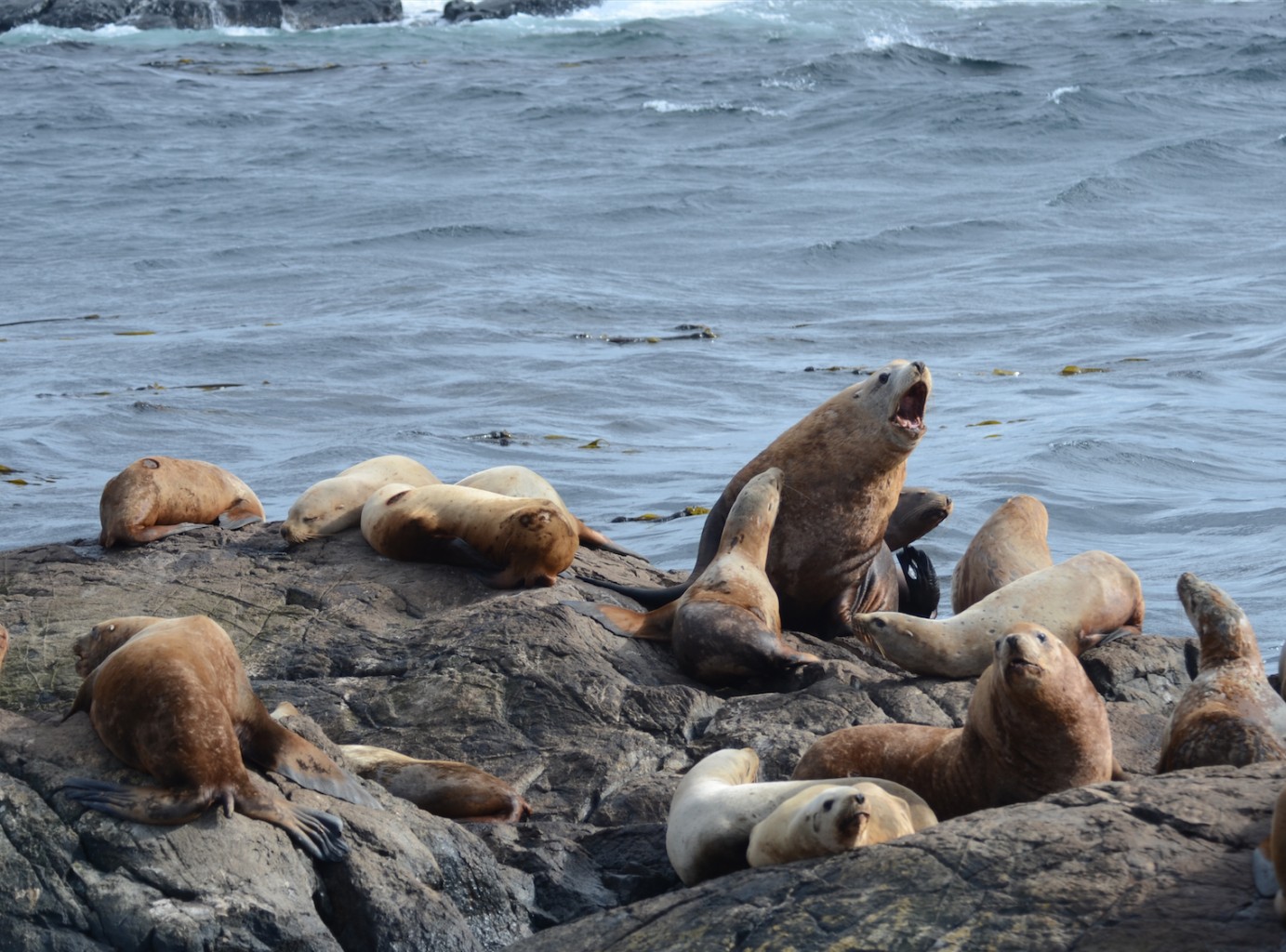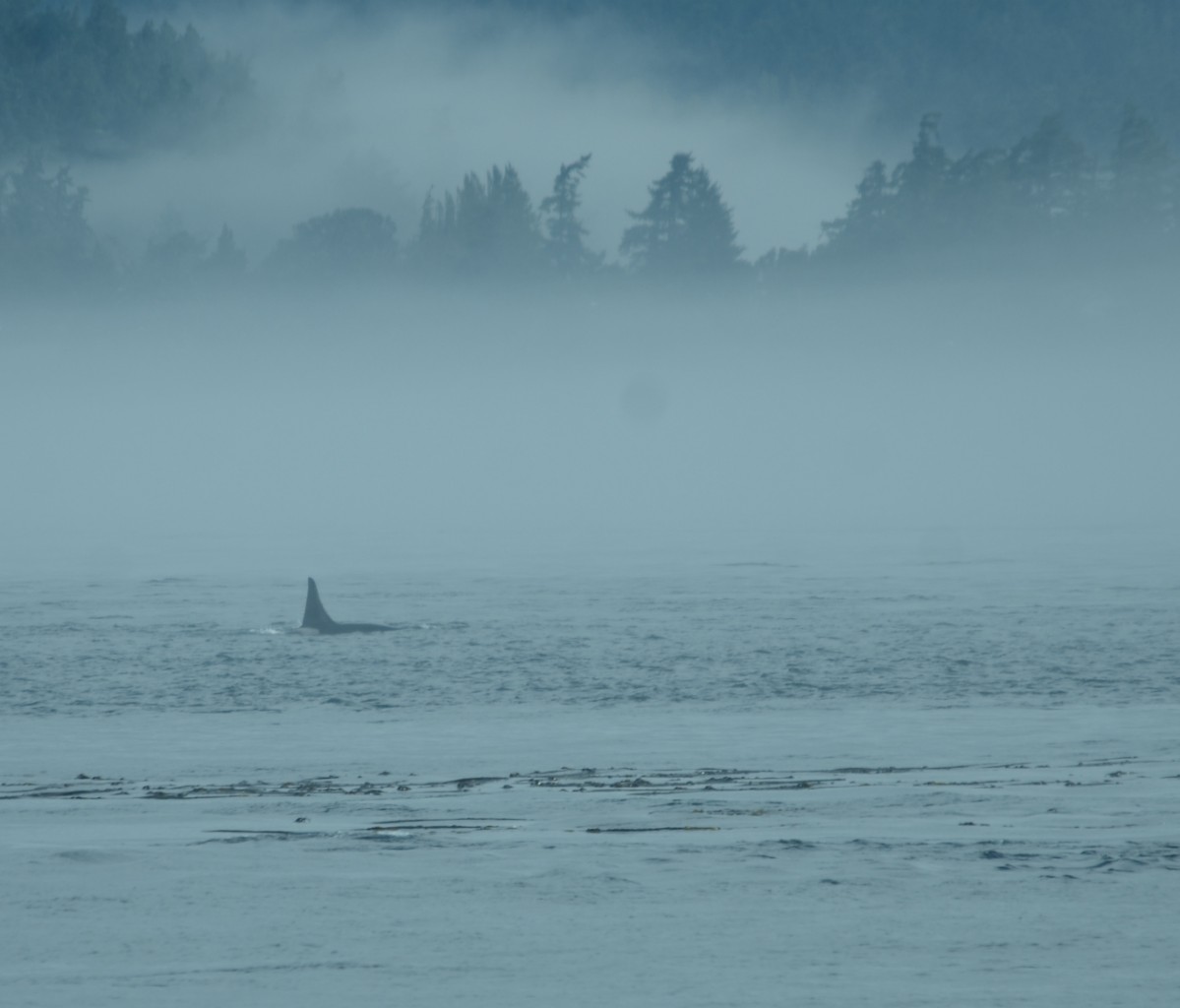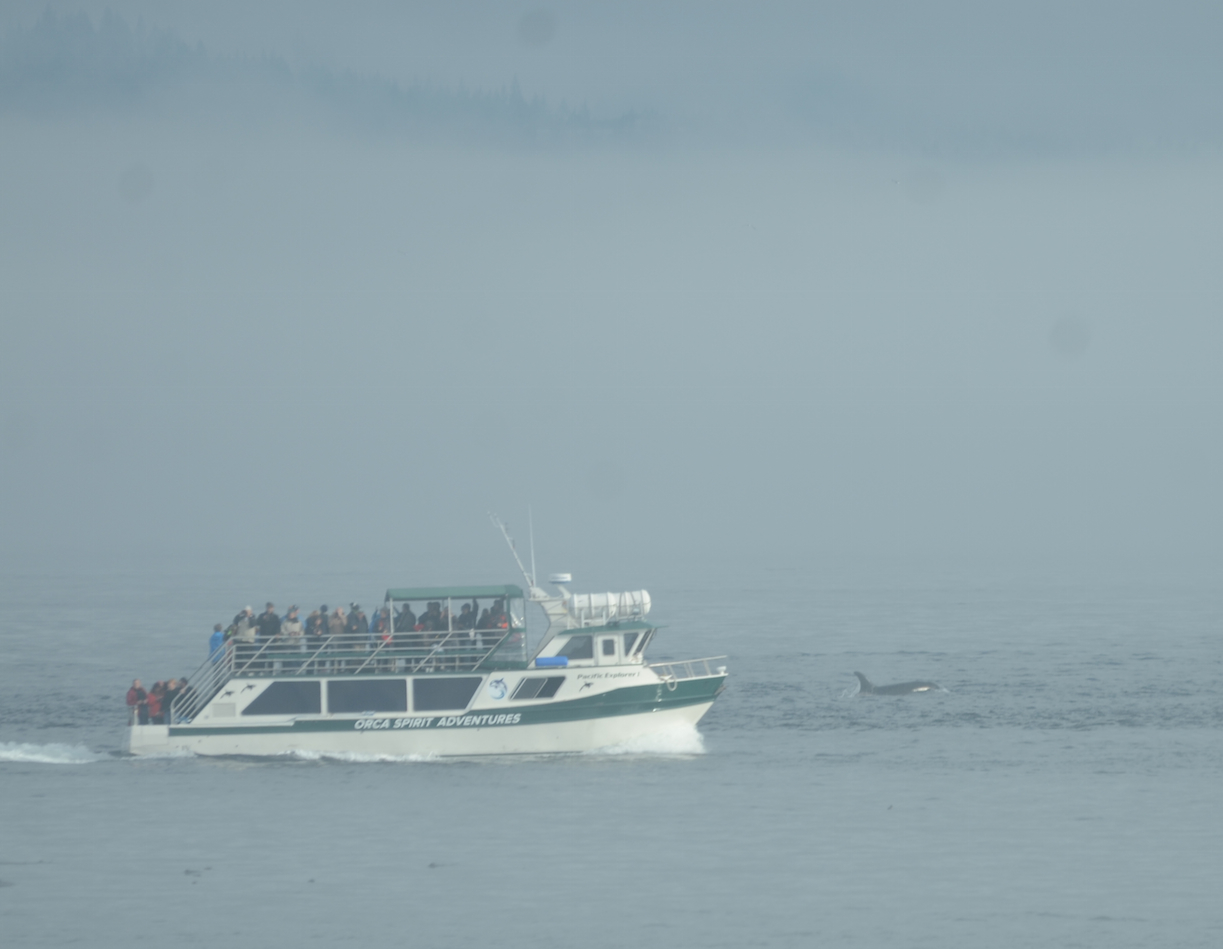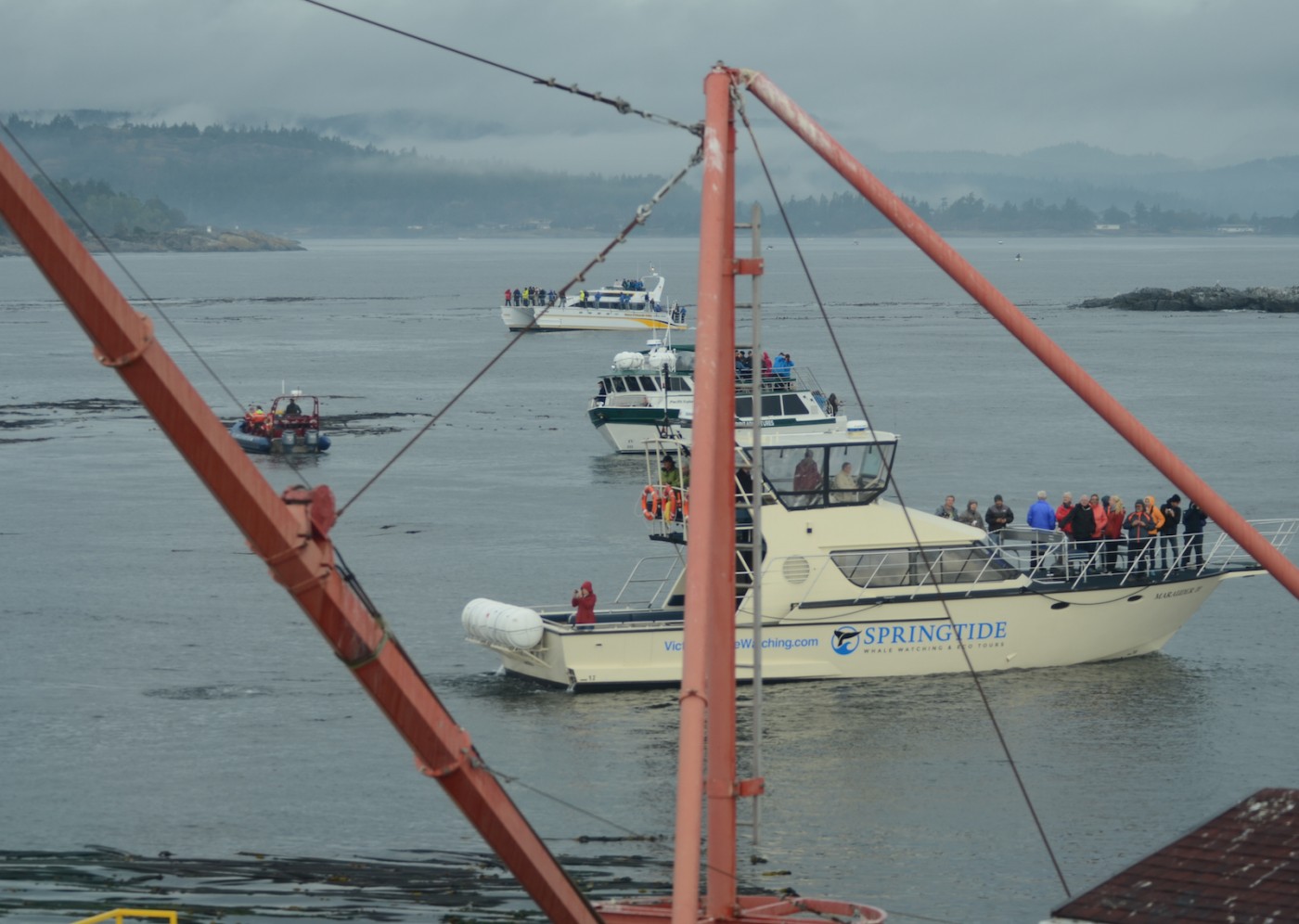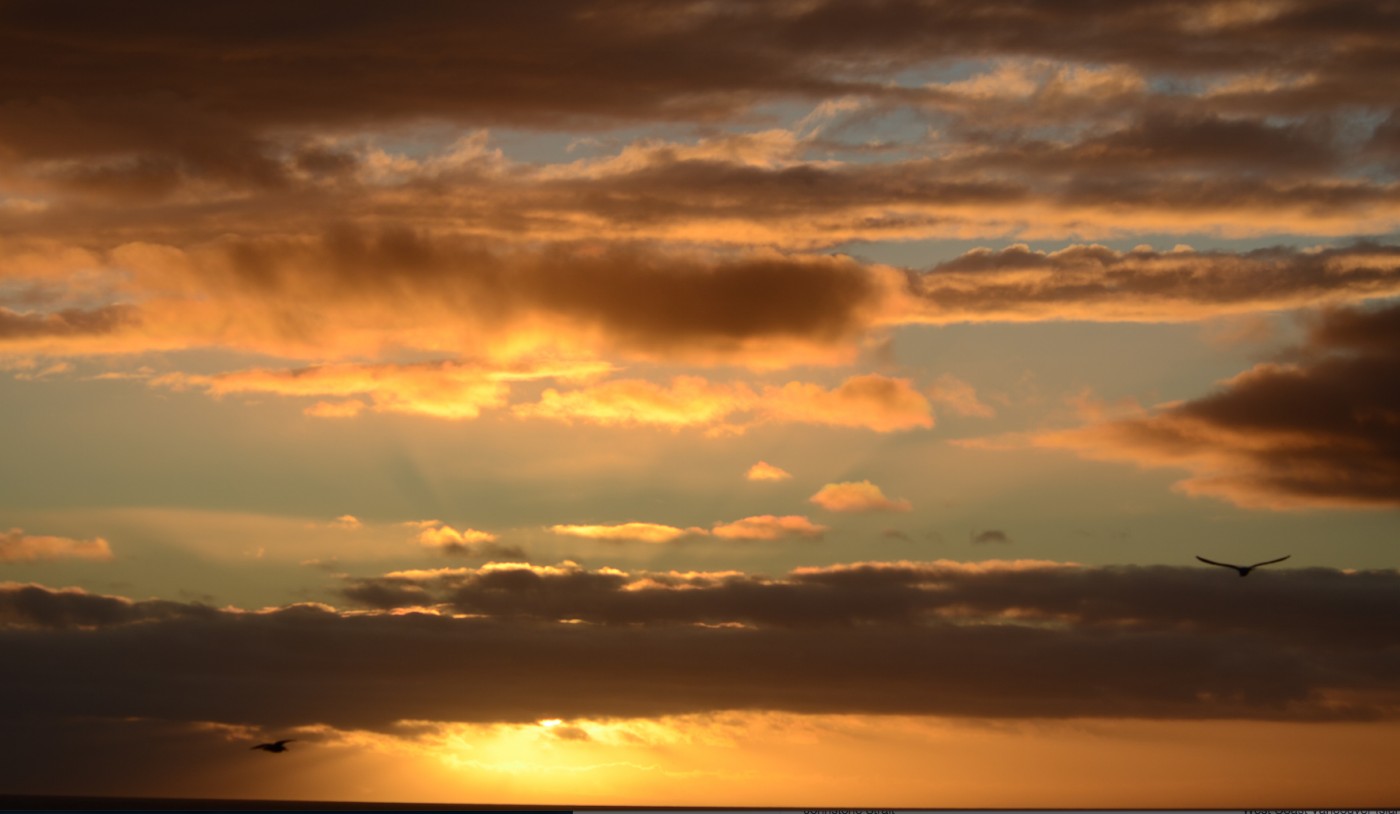Morning broke revealing thick fog at Race Rocks. Pushed around by light east by southeast winds along the Vancouver Island shore, the fog came and went. Across the strait in Washington it cleared first and stayed bright. The fog was gone by mid-morning and change was in the air. Over the course of the morning and early afternoon, the wind backed through northeast all the way to west. A dark line on the western horizon told of a storm coming and it hit quickly rising from 10 knots to 35 with higher gusts, in short order. Rain followed and there was a good wet blow autumn-like blow until it cleared with spectacular quadruple rainbows just before sunset. The barometer started to rise an hour before it started to clear in the early evening and the forecast is for winds to diminish to light overnight and 10 -15 west Monday afternoon. The clear skies are supposed to hold.
While the fog was receding and there was just a thin strip left along the north side of Race Passage, we were able to witness the moving sight of Southern Resident Killer Whales heading eastward. There were at least twenty animals and possibly more and they were moving at about four knots. There were a couple of really large bulls, lots of mid-size animals, one fairly small and one tiny one swimming with another little one. Several of the big bulls passed close to North Rocks and there was some tail slapping just to the east of the reserve. These animals are very endangered and yet very resilient. These are the surviving members of family groups that were hunted for live capture and sale to aquariums where they were (are) shown for the price of admission. Now that they are listed under Canada’s Species at Risk Act as Endangered animals, they are accompanied daily by a great parade of commercial whale watching vessels. The first vessel to spot them alerts the others and they hopscotch them, lay in wait for them and pass them off to others so they won’t be “lost”.
The parade came to Race Rocks again today with 28 visits observed in the Ecological Reserve by commercial whale watching vessels. At one point there were six vessels right in front of the jetty. Most of the vessels paid a close visit to the Sea Otter. Sea otters are one species we can celebrate as a conservation success story, in some places maybe even too much of a success. This is a species that was extirpated, reintroduced, listed successively as endangered, threatened and now is down-listed to special concern. People and policies do make a difference when it comes to recovery of species at risk and there are simple things we can all do to help make a positive difference.
Chores today were routine and we had no visitors.
- Size difference between males and females is obvious in Steller Sea Lions.
- Southern resident killer whale travelling east in Race Passage.
- Whale watching vessel and killer whale.
- Might this not be too great a concentration of whale-watching boats , Sept 20, 2015
- Part of rainbow.
- Sunset

